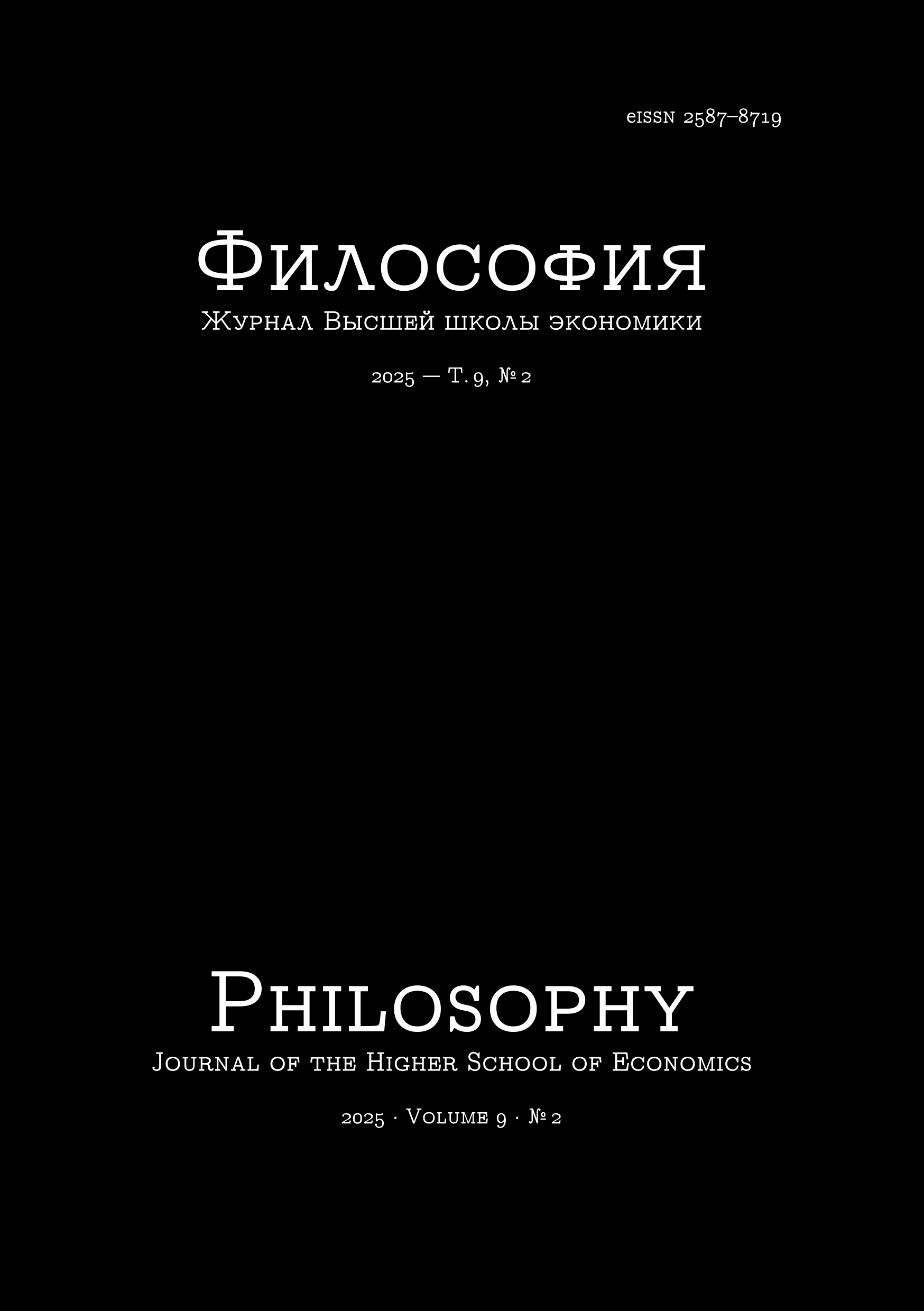The Philosophy of Slavophiles in the Historical and Philosophical Works of V.V. Zenkovsky
Abstract
V.V. Zenkovsky (1881–1962) is arguably the most influential historian of Russian philosophy, author of the fundamental “History of Russian Philosophy” (1948, 1950) and numerous works, both specifically devoted to and indirectly touching upon various historical and philosophical topics. However, paradoxically, his historical and philosophical works have very rarely been the subject of independent study, continuing to serve primarily as a source of information and interpretation, even though three quarters of a century have passed since the publication of “History of Russian Philosophy”. In this article, we focus on analysing Zenkovsky's interpretation of Slavophile philosophy in several aspects. First, we examine the place of Slavophilism in Zenkovsky's general historical and philosophical scheme, where they (together with Gogol) act as the founders of the theme of “Christian culture” and, in developing the latter, provide the first detailed interpretation of Christian (Orthodox) philosophy. In this regard, we focus on Zenkovsky's understanding of the process of secularisation and its duality, while noting that this dialectical interpretation is absent in Zenkovsky's later works. Secondly, we analyze Zenkovsky's understanding of Slavophilism, including his opposition to Slavophilism as a phenomenon of Russian social thought and the philosophical constructs of the Slavophiles (he categorically refuses to characterise the latter as a whole, calling this approach “stylisation”). In conclusion, attention is paid to Zenkovsky's interpretation of freedom, which he directly traces back to his interpretation of Khomyakov's teaching on the Church.
Downloads
Copyright (c) 2025 Philosophy Journal of the Higher School of Economics

This work is licensed under a Creative Commons Attribution-NonCommercial 4.0 International License.






